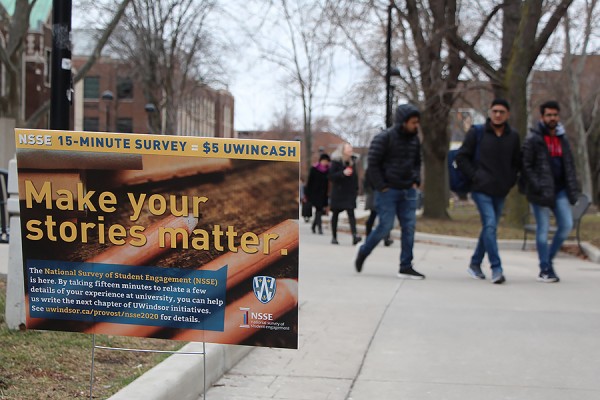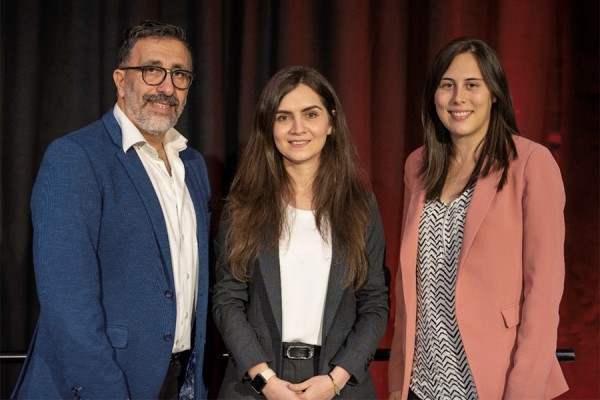 Students who complete the National Survey of Student Engagement by April 15 will receive $5 credited to their UWinCARD.
Students who complete the National Survey of Student Engagement by April 15 will receive $5 credited to their UWinCARD.
Every three years, the University invites students in their first and final years of study to take part in the National Survey of Student Engagement (NSSE), to share their perceptions of what’s happening in and out of class, what engages them, what works — and what needs work.
Research undertaken by the developers of the NSSE has identified that certain educational strategies, such as high-impact practices, help students to become deeply involved in their learning, while also fostering strong relationships with others on campus, says UWindsor provost Douglas Kneale.
High-impact practices include:
- Being part of a learning community or some other formal program where groups of students take two or more classes together;
- Taking courses that include a community-based project (service learning);
- Working with a faculty member on a research project;
- Internships, co-ops, field experiences, student teaching, or clinical placements;
- Studying abroad;
- Undertaking a culminating senior experience, such as capstone courses, senior project or thesis, comprehensive exam, portfolio, etc.
In 2017, owing to the efforts of faculty, staff, and students, the survey drew response in unprecedented numbers: about 59 per cent of eligible students participated, more than double the participation rate in 2014. With the 2020 survey set to launch in early February, the University hopes to have another successful campaign.
Faculty are encouraged to invite their first- and fourth-year students to participate in the survey. A PowerPoint presentation, created by biomedical sciences professor Dora Cavallo-Medved, is available for download for use in class.
Eligible students will be contacted via email with invitations to take part. A link will appear on Blackboard in early February 2020. Students who complete the survey by April 15 will receive $5 credited to their UWinCARD.
More information about the NSSE is available at uwindsor.ca/provost/nsse2020.




